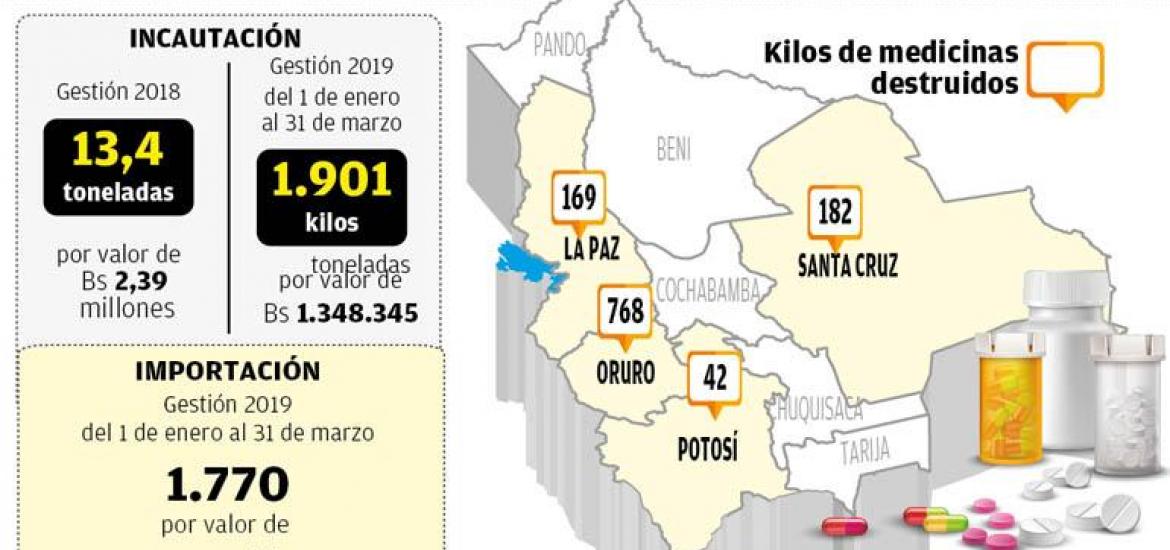Customs authorities in Bolivia have seized nearly two tons of contraband medicine this year, highlighting the scale of an illegal industry that many countries throughout Latin America are struggling to combat.
In just the first three months of 2019, customs officials in Bolivia have seized 1.9 tons of contraband pharmaceutical drugs worth an estimated 1.3 million bolivianos (around $188,000), La Prensa reported.
The 768 kilograms of contraband medicine seized in Oruro department along Bolivia’s western border with Chile accounted for the majority of the seizures, followed by 182 kilograms in eastern Santa Cruz department bordering Brazil and 169 kilograms in La Paz department, which borders both Chile and Peru.
(Graphic c/o La Prensa)
The confiscated drugs are often anti-inflammatories, antibiotic creams and cancer-treating products, according to Bolivian Customs Chief Marlene Ardaya.
In 2018, Bolivian authorities seized a total of 13.4 tons of contraband medicine valued at 2.39 million bolivianos (around $346,000). The sale of contraband medicine accounts for about 21 percent of the national trade, La Razón reported.
Authorities throughout the region are struggling to combat the trafficking of black market medicine. In Mexico, for example, a senator has proposed tougher punishment for the illegal production and theft of medicine. And in Colombia, criminal groups continue to traffic illicit medicine from Ecuador through the the country’s Pacific coast, and from Venezuela through the Atlantic coast.
InSight Crime Analysis
Whether it’s oil, cigarettes or illegal medicine, countries throughout Latin America have long struggled to curb contraband in large part due to the official corruption that often facilitates the trade.
Indeed, just last month, authorities in Bolivia dismantled a smuggling ring that was headed by a former police commander, Rommel Raña, in Oruro department — one of the hotspots for such activity. Authorities said Raña’s ring was composed of 100 others, including police officers and military personnel, according to La Razón.
SEE ALSO: Coverage of Contraband
Along the Brazil-Paraguay border, former Paraguay President Horacio Cartes has long been thought to have a central role in the region’s contraband cigarette trade. In January 2018, Brazilian authorities seized 500 boxes of cigarettes originating from a company owned by the former president.
Security officials can exploit contraband networks in other ways as well. Police officers in Argentina, for example, have also been found to facilitate the trade by turning a blind eye and extorting black market shopkeepers.


